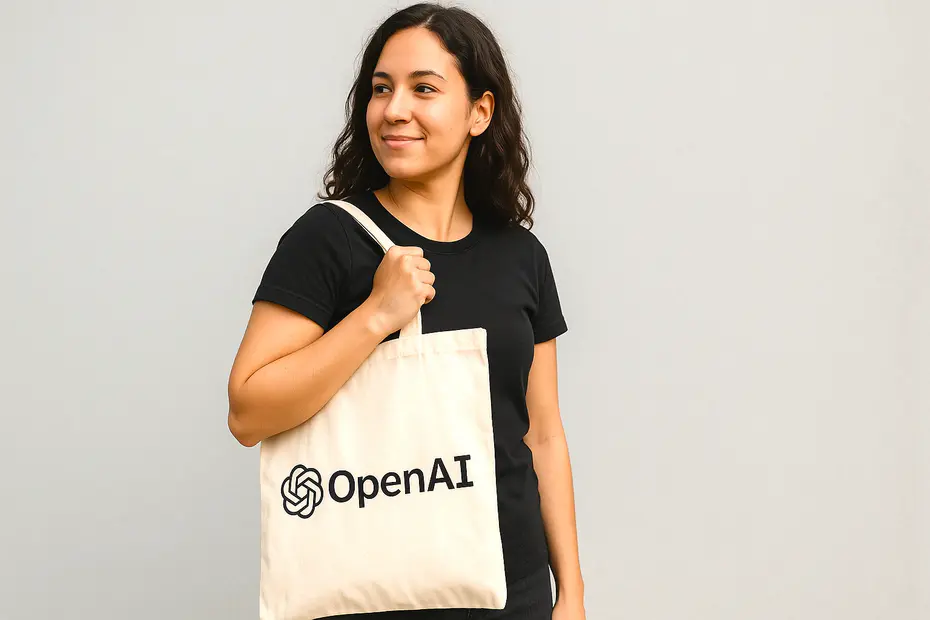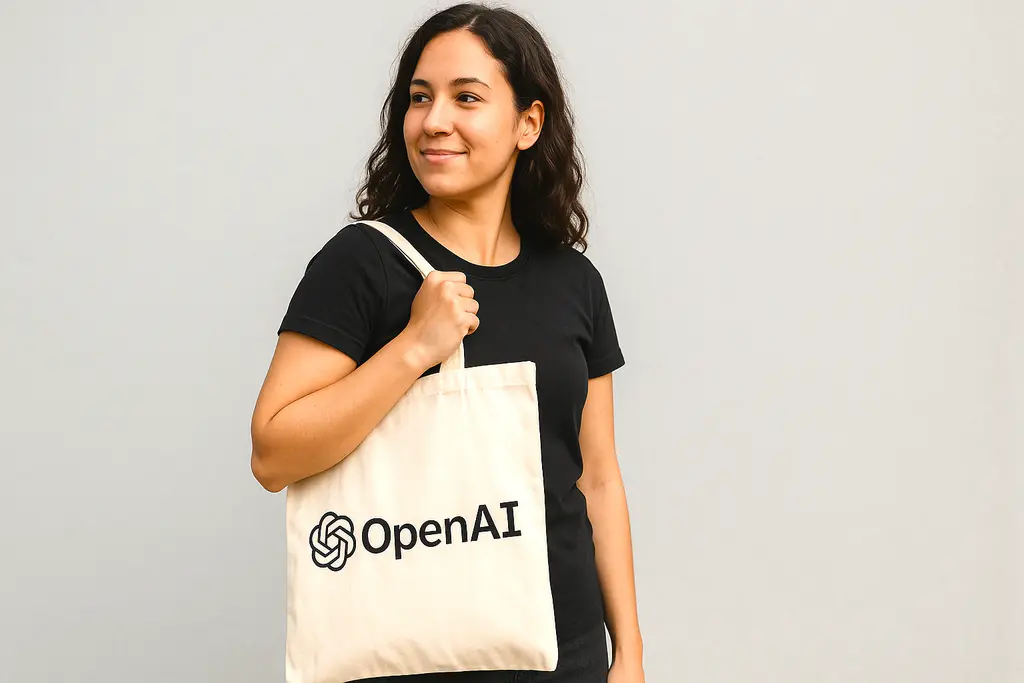Get ready for a significant shift in how you search for and buy products online. OpenAI, the creator of the popular ChatGPT, has announced the integration of shopping features directly within the chatbot interface. This development promises to transform ChatGPT into an even more powerful tool, going beyond simple text and code generation.
The Arrival of Shopping on ChatGPT
The big news is that OpenAI is adding purchase buttons to ChatGPT. This means that soon, users (subscribers and non-subscribers alike) will not only be able to get product information but also be guided more easily toward making a purchase. The idea is to simplify the research and decision-making process, making the transition to buying smoother.
It’s important to note that the final transaction will still take place on the retailer’s website. ChatGPT will act as an intelligent intermediary, helping discover and choose the ideal product. With users already conducting over a billion web searches per week, the shopping integration capitalizes on an existing behavior and elevates it to a new level. The tool is already used to research a wide range of categories, from beauty to electronics. If you have used the chatbot for research, you may have noticed that after a recent update, ChatGPT experienced some server challenges, but the company continues to expand its features.
How Product Recommendations Work
During a demonstration for WIRED, Adam Fry, ChatGPT’s search product lead, showed how the new experience can assist in choosing items like espresso machines or office chairs. Recommendations are based both on what ChatGPT “remembers” about your previous preferences and on product reviews gathered from across the web.
The shopping interface in ChatGPT bears similarities to Google Shopping. Clicking on a product image lists multiple retailer options, such as Amazon and Walmart, with buttons to complete the purchase. However, there is a crucial difference: initial recommendations on ChatGPT are organic results, not paid ads. “They are not ads,” Fry stated. This approach contrasts—for now at least—with some listings on Google Shopping, where retailers can pay for premium placement. Competition in the AI and search space is fierce, and OpenAI’s move can be seen as a strategic step, similar to the evolution we see from competitors like Google Gemini.
The Conversational and Personalized Edge
The big advantage of ChatGPT, according to Fry, is its more conversational and personalized approach, as opposed to a search purely focused on keywords. It doesn’t look for specific algorithmic signals but tries to “understand how people are evaluating this, how people are talking about this, what the pros and cons are.”
Personalization is a strong point. If you say you prefer to buy only black clothes from a particular retailer, ChatGPT will supposedly store that information for future recommendations, aligning with your taste. This ability to learn from past interactions and tailor responses is what sets advanced chatbots apart from traditional search tools. This capacity to “remember” and act based on previous interactions is reminiscent of the recently introduced “Tasks” feature, which allows ChatGPT to be more proactive in your routine.
Where Do the Reviews Come From?
- ChatGPT compiles reviews from various online sources.
- This includes specialized editors like WIRED.
- It also incorporates user-generated content from forums like Reddit.
- Users can indicate which types of reviews they want to prioritize.
ChatGPT vs. Google Shopping: A Comparison Table
| Feature | ChatGPT Shopping | Google Shopping |
|---|---|---|
| Basis of Recommendations | User preferences + Reviews (editorial and user-generated) | Algorithm (organic and paid) |
| Paid Ads | No (initially) | Yes (a mechanism) |
| Checkout | Redirects to retailer’s site | Redirects to retailer’s site or own checkout |
| Experience | More conversational and personalized | More focused on keywords and listings |
The Future of Monetization and Revenue
A crucial question for online publishers is how affiliate revenue will work. Currently, many review sites earn commissions when readers buy a product through their links. With ChatGPT recommending products based on reviews from sites like WIRED, there is uncertainty about the revenue-sharing model.
Adam Fry mentioned that OpenAI is “experimenting with a number of different ways” this could work. The initial priority is to offer high-quality recommendations, and affiliate revenue models will be refined over time. While OpenAI has ambitious revenue goals, projecting $125 billion by 2029 (according to a The Information report), the exact role of affiliate revenue remains unclear. CEO Sam Altman himself has floated the idea in interviews. This OpenAI move places the company in a new competitive arena, and the business model behind it will be critical to its success—potentially as defining as the historic Netscape vs. Microsoft war for the future of open AI.
The AI Shopping Ecosystem
OpenAI’s push into shopping is not isolated. The company has already launched Operator, an AI agent that can control browsers to assist with tasks like shopping or booking reservations. Although initial impressions were of a somewhat “clunky” functionality, the direction is clear. Competitors are also exploring this space. For example, Perplexity launched “Buy with Pro,” enabling direct purchases within the app. Google, on its part, already includes an “AI-Researched” section in its Shopping tab, offering review summaries and recommendations. The AI landscape is constantly evolving, with new features and sometimes controversies, such as the scandal involving DeepSeek and accusations of stealing OpenAI secrets.
Integrating shopping into ChatGPT represents a bold step by OpenAI to capitalize on the enormous volume of product searches already conducted on the platform. By offering a more conversational and personalized experience, the company aims to differentiate itself from traditional search models. Success will depend on the quality of recommendations and how OpenAI addresses monetization and relationships with publishers. The future of online shopping may be becoming smarter than ever. To better understand how product recommendations work on platforms like Google, it’s useful to explore how Google Shopping operates and what affiliate marketing is.
Frequently Asked Questions (FAQ)
- What does “OpenAI adds shopping to ChatGPT” mean? It means ChatGPT will have buttons and interfaces that make it easier to research and decide on products, guiding users to retail websites.
- Can I complete the purchase inside ChatGPT? No, the final transaction is completed on the retailer’s website to which ChatGPT redirects.
- How does ChatGPT decide which products to recommend? Recommendations are based on user preferences (remembered by the AI) and product reviews compiled from various online sources (editorial sites, forums).
- Are product recommendations on ChatGPT paid ads? Initially, OpenAI says the recommendations are organic results based on reviews, not payments from retailers.
- How does this affect sites that publish product reviews? OpenAI is exploring affiliate revenue models to compensate sites whose reviews contribute to ChatGPT’s recommendations, but details are still in development.
In my opinion, adding shopping to ChatGPT is a natural and strategic move. AI is already a powerful research tool, and integrating the buying step directly into the conversational flow has the potential to greatly simplify the consumer journey. Personalization based on history and conversations is a clear advantage over traditional search. However, monetization challenges, especially regarding publishers who create review content, will need to be addressed transparently and fairly to ensure a healthy ecosystem. It will be fascinating to watch how this feature evolves and if it truly transforms e-commerce.
What’s your opinion on ChatGPT becoming a shopping tool? Leave your comment below!

